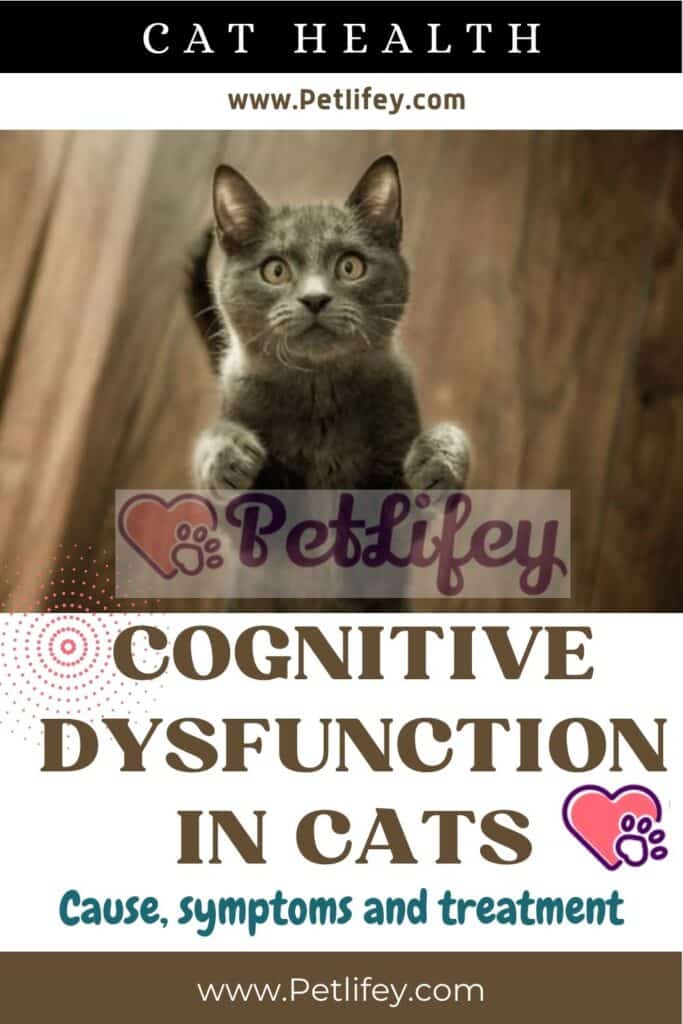
Cognitive dysfunction in cats is a disease that affects the cat in the stage of old age. Let’s see what the causes, symptoms and treatment are.
Something we just would never want to see is the death of our pet, but its aging is also very sad in some cases. In particular, seeing your cat age is much more touching, the reason is soon said.
What our feline has accustomed us to in the years spent together is a continuous gym of jumps and chases, while today it is unrecognizable. All this because his muscles are no longer the same, his limbs no longer have the same strength and diseases have arrived in a body that is now old but which in our eyes remains our kitten.
Among the various diseases that can affect our furry friend, cognitive dysfunction in cats is making its way. In this article we will deal with this pathology, the symptoms it entails and any treatment available.
Cause of cognitive dysfunction in cats
Cognitive dysfunction syndrome (CDS) is a disease usually associated with older dogs . However, cats can also suffer from this same condition. The causes that are assigned to cognitive dysfunction in cats are organic, for example: brain trauma, brain injury, neurodegenerative diseases or even drug abuse.
This disease is characterized by a progressive worsening of cognitive functions, in particular it affects older cats in the age group ranging from 11 to 14 years.
Symptoms
Cognitive dysfunction in cats is a neurodegenerative disease that, as we have previously explained, affects older cats and it is very difficult for us humans to distinguish the symptoms that may be due to the cat’s age or disease. In fact, the signs of the disease are very variable, for example:
- confusional state;
- disorientation;
- aggressive behaviors in cats;
- a decrease in interest in interacting with people or other pets;
- stops using the litter box;
- cat sleep-wake rhythm disturbances, the cycle may appear to be reversed, with the cat sleeping more during the day rather than at night. Furthermore, sleep can be intermittent;
- stops cleaning properly and / or becoming less active;
- excessive vocalizations (usually at night).
Keep in mind that the cat suffering from this neurodegenerative disease can show one or more of the symptoms listed above.
Diagnosis and treatment of cognitive dysfunction in cats

In order to make a diagnosis of cognitive dysfunction in cats, the veterinarian will have to carry out certain tests and elaborate theses going to exclude other causes of the symptoms found on the animal. Establishing a diagnosis is not very easy because older cats are more likely to encounter multiple medical problems.
In fact, in the elderly cat it is common a worsening of all its senses (hypoacusis or deafness, low vision or blindness, decreased sense of smell). In addition there are typical age-related diseases, such as: hyperthyroidism, diabetes mellitus, kidney failure in cats , liver disease, hypertension, tumors and / or metastases, dental and / or oral cavity diseases, disorders of the musculoskeletal system which are very often accompanied to pain.
For this reason, in order to have a precise diagnosis, all these pathologies must be excluded. Once the diagnosis has been established, the treatment of cognitive dysfunction in the cat will proceed. The therapy aims to slow the ruthless progress of neuronal damage and cell death and to improve symptoms to avoid further pain to the animal.
The veterinarian will advise how to intervene through specific diets, supplements, fatty acids, antioxidants and drugs. Cognitive dysfunction in cats cannot be cured, but if recognized early, symptoms can be reduced and disease progression slowed, thanks to the previously described therapy. The specialist will know how best to proceed by processing each individual case specifically.






